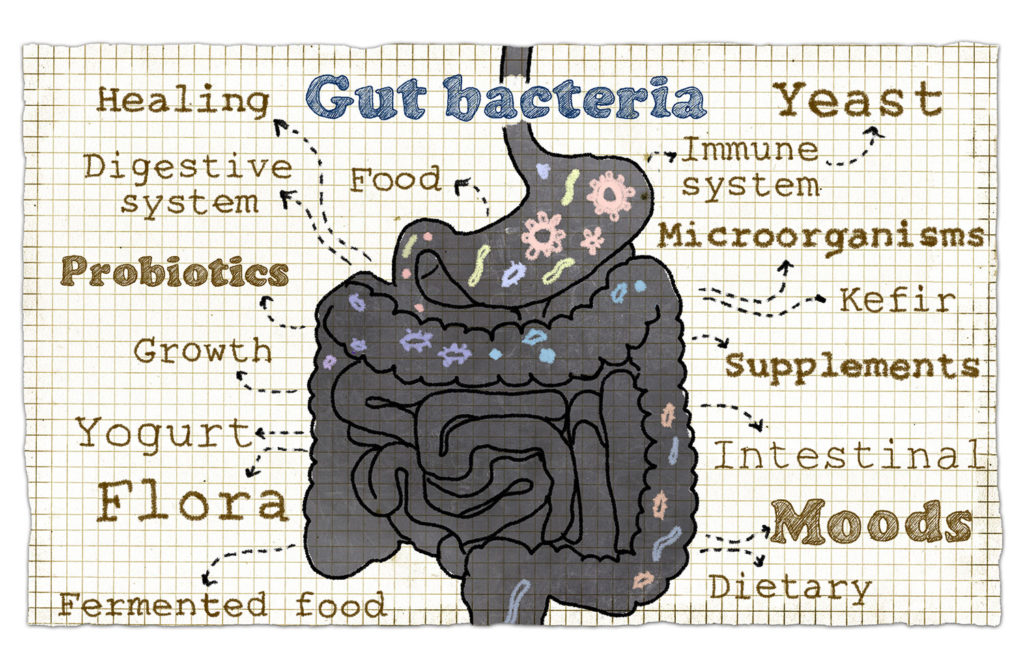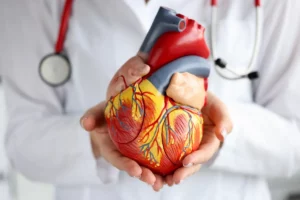Summary
It certainly doesn’t sound very glamorous: gut health. But, if you look it up, you’ll be flooded with a sea of remedies to buy and try like liquids, powders, pills, and more to maintain good gut health. Dr. Ronnie Porat Jankelson reviews the basics of achieving good gut health and its benefits for our digestive system.
Listen on Spotify Listen on Apple Podcasts Listen on Google Podcasts
Transcript
Maggie McKay: It certainly doesn’t sound very glamorous, gut health. But if you look it up, you will be flooded with a sea of choices of remedies to buy like powders, liquids, pills, and more to maintain good gut health. To set the record straight about what it is and how to maintain good gut health is Dr. Ronnie Jankelson, a gastroenterologist at Maimonides Medical Center. This is Maimo Med Talk. I’m your host, Maggie McKay. Welcome, doctor.
Dr. Ronnie Jankelson: Hi, Maggie. Thank you so much for having me.
Maggie McKay: Absolutely. When we talk about the gut, what part or parts of the body does that refer to?
Dr. Ronnie Jankelson: So, when we’re saying the gut, we actually refer to the microbiota, to the bacteria that lives inside the gut.
Maggie McKay: Is that like your stomach or lower?
Dr. Ronnie Jankelson: It’s the entire GI system starting from your mouth and ending where it ends, the entire GI system.
Maggie McKay: Okay. So like your colon and…
Dr. Ronnie Jankelson: And the small intestine, true.
Maggie McKay: Okay. Why is gut health so important?
Dr. Ronnie Jankelson: It is known that the gut microbiota is just like an organ. It is a system connected to any other system, all of the other organs in the body, starting from the brain, which is a very strong and established connection called the gut-brain exists; to the heart; the kidneys; the liver, obviously, all parts of the GI system, just about anything in the body.
Maggie McKay: Wow. Even the brain. Who knew? How can gut health influence a person’s quality of life?
Dr. Ronnie Jankelson: Again, the health of the gut is basically part of the general health. So once the gut is healthy, it’s easier to maintain a normal weight, for example. There are less psychiatric disorders. Your mood would be better if your gut is healthier. Less heart disease, just about anything. Everything is connected together.
Maggie McKay: Wow. So describe a healthy gut versus an unhealthy gut?
Dr. Ronnie Jankelson: A healthy gut will contain diversity of bacteria, a large number of different species of bacteria. And some of those bacteria we refer to as good bacteria. Those are specific species that are proven to be more beneficial to good health. And in a healthy gut, that bacteria will appear in larger numbers.
Maggie McKay: And an unhealthy gut?
Dr. Ronnie Jankelson: Number of the good bacteria will be lower. There will be other bacteria that we call the bad bacteria. And the diversity, there will be less different species. Just to give you an example, even after taking antibiotics for five days, for whatever reason, the diversity of the bacteria in the gut is reduced. And it’s proven to do even lose species of bacteria that will never come back just by taking antibiotics for five days.
Maggie McKay: Wow. Is having an unhealthy gut reversible?
Dr. Ronnie Jankelson: Yes, definitely. And amazingly, it is affected most of all by our nutrition and it’s something that you can change and do everyday. It’s proven that the effect of diet is greater than the effect of genetics over the microbiota.
Maggie McKay: Okay. So what steps should a person take to improve their gut health?
Dr. Ronnie Jankelson: First of all, avoid smoking, avoid excessive alcohol drinking and avoid unnecessarily medication, especially unnecessary antibiotics. Second, living a healthy lifestyle, meaning sleeping enough hours at night and exercising. Those things surprisingly affect the bacteria in the colon. And most importantly, eating a healthy diet, meaning avoiding processed food, trying to increase the fiber intake. And the healthier the diet and the more rich it is with fibers, the healthier gut microbiota will be.
Maggie McKay: And so once you get your gut in order, good working order, how do you maintain it? Just keep it up, all those things you just said?
Dr. Ronnie Jankelson: Exactly. Yes.
Maggie McKay: What does a person need to know about fasts and cleanses and probiotics, specified diets, et cetera, that are advertised to improve or create good gut health? Because we see those commercials a lot.
Dr. Ronnie Jankelson: No, in most cases, the effect is minimal and changing the gut microbiota is first of all is not that easy, and that’s number one. Number two, none of those things that you mentioned aren’t necessary. The tools are so easy and and they’re in hand. You don’t have to search for a special diet or special cleanse, which cleanse doesn’t exist, but that’s just in brackets. Just eat simple, nutritious food with a lot of fiber, a lot of fruits and vegetables because the fibers in the fruits and vegetables provide nutrition for the microbiota.
Maggie McKay: So those commercials you see all the time, you know, if you have one of these probiotic yogurts a day, your gut health will be much better. No, we don’t need that?
Dr. Ronnie Jankelson: You don’t need that, no.
Maggie McKay: Good to know. What about a colonoscopy? Would that be in order to clean out your gut or is that way over the top?
Dr. Ronnie Jankelson: No, first of all, there’s no need to clean the gut. The gut cleans itself daily. There’s no need to clean anything and nothing external. It should be done in order to clean the gut because the gut is clean as it is. The purpose of colonoscopy is done, for the average person, a normal healthy person over the age of 45 needs colonoscopy in order to screen for colon cancer, look for polyps and remove those, but it’s unrelated to the microbiota of the colon. It’s two different things and they do not meet. In order to improve your gut microbiota, a healthy diet and a healthy lifestyle are the key components of it.
Maggie McKay: Okay. So the single most important piece of advice to give our listeners on how to maintain a healthy gut? Diet and exercise? Fiber?
Dr. Ronnie Jankelson: Fiber. I would pick fiber for sure.
Maggie McKay: Okay. And just to review, can you just tell us some everyday foods that are high in fiber?
Dr. Ronnie Jankelson: All types of fruits and vegetables are excellent. If it’s tomato or cucumber or lettuce that you eat fresh or any vegetables you’ll have to cook as cauliflower or broccoli, onion, carrot, you name it. All the options are good and correct options. I want to mention that fibers not only nourish their microbiota, but also reduce the cholesterol level, improve bowel movements, prevent constipation. If you eat a plate full of vegetables and fruits, you don’t have more room to eat cookies or sugary foods because you eat the good stuff instead. So yeah, that’s the way to look at it. I think fibers are underestimated and I want to emphasize the importance and the benefits of fiber. There’s not too much fibers. So fiber is always the answer.
Maggie McKay: Okay. Fiber is our friend. We appreciate your time doctor and your expertise on this topic because basically it does affect us all.
Dr. Ronnie Jankelson: I agree.
Maggie McKay: Well, thank you so much for being here.
Dr. Ronnie Jankelson: Thank you so much for having me.
Maggie McKay: To make an appointment with one of our gastroenterologists, please call (718) 283-5900. Or visit my maimo.org, M-A-I-M-O.org/treatments-care/gastroenterology. This has been Maimo Med Talk. I’m your host. Maggie McKay. Be well.







